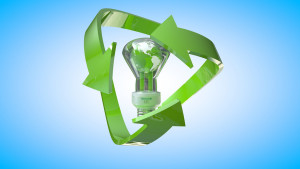5 Wintertime Energy Efficiency Tips
 There are several things you can do around the house to improve energy efficiency; ultimately reducing your electric bills while putting less strain on the heating system. Scheduling a home energy audit is one of the best ways to see where you can save, particularly for homeowners in New Jersey who are used to harsh winters. Our Professional Heating Service Technicians have put together five wintertime energy efficiency tips you can implement today:
There are several things you can do around the house to improve energy efficiency; ultimately reducing your electric bills while putting less strain on the heating system. Scheduling a home energy audit is one of the best ways to see where you can save, particularly for homeowners in New Jersey who are used to harsh winters. Our Professional Heating Service Technicians have put together five wintertime energy efficiency tips you can implement today:
1. Check Windows and Doors for Drafts
Contents
A large part of any home energy audit will include examining windows and doors for drafts or air leaks. You could be paying to heat air that immediately escapes outside, driving up energy costs while forcing your system to work overtime. Ways to reduce drafts and leaks include:
- Upgrading to energy-efficient windows
- Repairing wooden frames
- Caulking or otherwise sealing windows
- Hanging thermal curtains to lessen the amount of cold air coming through window panes
- Replacing or adding attic insulation
If you have a screen door, adding a glass pane during the winter can help reduce air leaks through the front or back doors.
2. Examine and Seal Ductwork
Your home energy audit will also include a thorough inspection of your home’s vents and ductwork. As much as heated air can escape through windows and doors, you may be surprised to realize how much air can also escape as it is transported from the heating unit to the vents. Known as distribution losses, this type of air leak forces your unit to work harder in order to supply enough heated air to warm the home. Sealing ductwork will keep you warmer while reducing energy use and producing fewer carbon dioxide emissions.
3. Change and Clean Furnace Filters
Most homeowners know that air filters need to be replaced before the start of the summer and winter seasons, but how many of us change the filter every 30-60 days throughout each season? Although it may be tempting, it is not enough to change your filter once and consider it done. Dirty filters low air quality and restrict airflow, which makes your heating unit work harder. Some types of filters can be cleaned, but others must be replaced.
4. Schedule an HVAC Inspection and Cleaning
Furnaces and fuel-burning units alike should receive regular maintenance. Part of an inspection with a professional HVAC technician will include making sure the unit is properly cleaned, lubricated, and adjusted. Even a simple tune-up could make a difference in your home’s energy consumption.
5. Consider Upgrading Equipment
How old is your heating equipment? Units more than ten years old may be much less efficient than their modern-day counterparts. Replacing a unit is an investment and involves a sizeable up-front cost, but Energy Star rated equipment can help you reduce energy and save money over time. Reviewing your bills and equipment costs is the first step to see if an upgrade is right for you. If so, consider making an investment for long-term savings.
Maximize Energy Efficiency with Point Bay Fuel
For more information, contact Point Bay Fuel at (732) 349-5059. We are a full-service company for homes and businesses throughout Ocean and Monmouth counties, including 24/7 emergency service.
